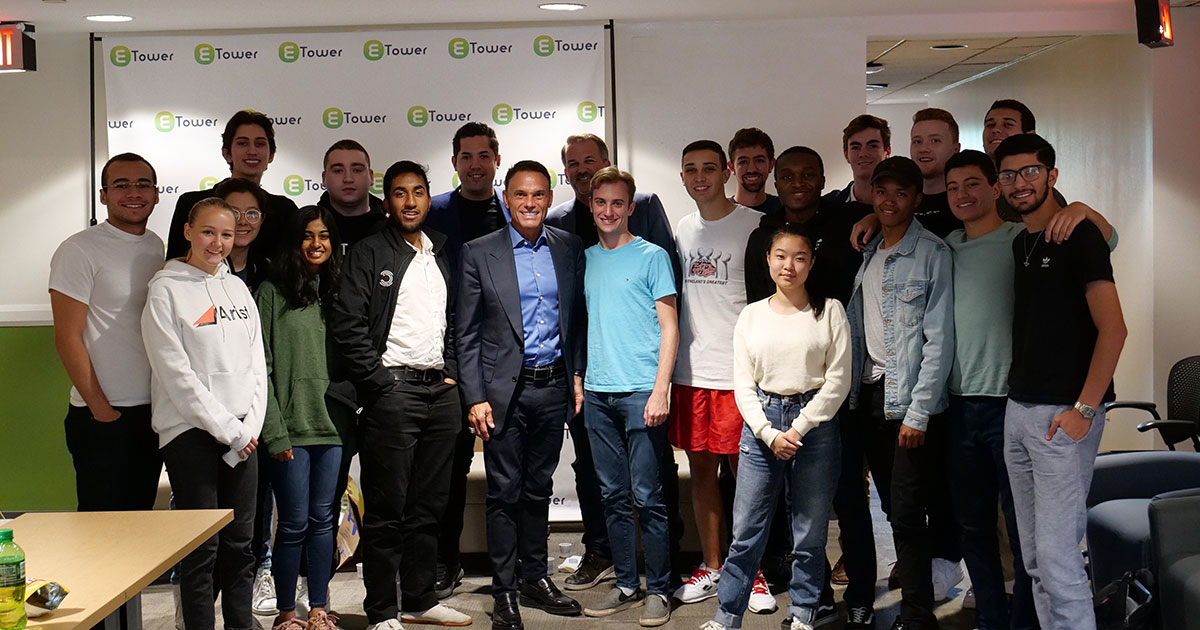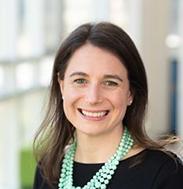Students Reinvent the Pitch with Kevin Harrington
Widely known as the founder of As Seen on TV and as one of the original Shark Tank sharks, the “inventor of the infomercial” Kevin Harrington started Quantum Marketing International (QMI) on August 27, 1988, with no products and no plan. From there, Harrington successfully built QMI promoting products like the Ginsu Knife.
“Babson has been part of my life for 28 years now.”
In 1991, the late Neil C. Churchill, former Babson professor and director of the Center for Entrepreneurial Studies, wrote a case study about QMI. A team of students spent six months studying the business and analyzing the opportunities and pain points of rapid growth.
The case study is still taught at Babson today—currently taught in Senior Lecturer Ed Marram’s graduate-level class Managing Growing Businesses—and the insights gleaned during the years have benefited Harrington. In fact, he goes so far as to attribute some of his success to Babson and the case study experience: “The info that came about from the case study helped to mentor me to become more successful.”
“I look for something that solves a problem.”
It’s fitting then that Harrington recently returned to campus to share his experience and expertise and to coach Babson’s emerging entrepreneurs. Meeting with eTower residents, Harrington spoke about his entrepreneurial journey, explained what he looks for in a product, and offered pitching advice.

Three eTower residents stepped up to pitch their ventures—Jason Shatsky ’22, founder of tickr; Noah Doris ’20, founder of Goba Tea; and Chris Lally ’20, founder of Flight Squad. Harrington is no stranger to pitching—he filmed 175 segments while on “Shark Tank,” is constantly pitched when he attends trade shows, and was eager to weigh in on both substance and style. He encouraged these eTower entrepreneurs to clearly define the problems they are seeking to solve and to find ways to prove their concepts.
Harrington always looks for something that solves a problem. When launching iconic products on TV and working with household names like Jack LaLanne, Tony Little, and George Foreman, he was diligent about identifying products that solved a problem in a unique way, were demonstrable, and yielded a “magical transformation” like a weight loss before and after.
Today, he launches products on social media first, calling it “the perfect testing ground,” and only features them in TV spots if they show results. He has been burned by getting “too close” to a product, so he urges a focus on the metrics: “Test before you invest.”
First Impressions Count
Looking around the eTower common room, Harrington was impressed by the creativity and commitment of the student entrepreneurs, all of whom are working on a venture or idea. “Nobody said they were just a student … that’s amazing.”
And, about one venture in particular—Lally’s venture, Flight Squad, which helps customers save money on flights—he was enthusiastic, seeing the connection between an unmet need and the business: “I think you might be onto something.”
Posted in Community, Entrepreneurial Leadership




